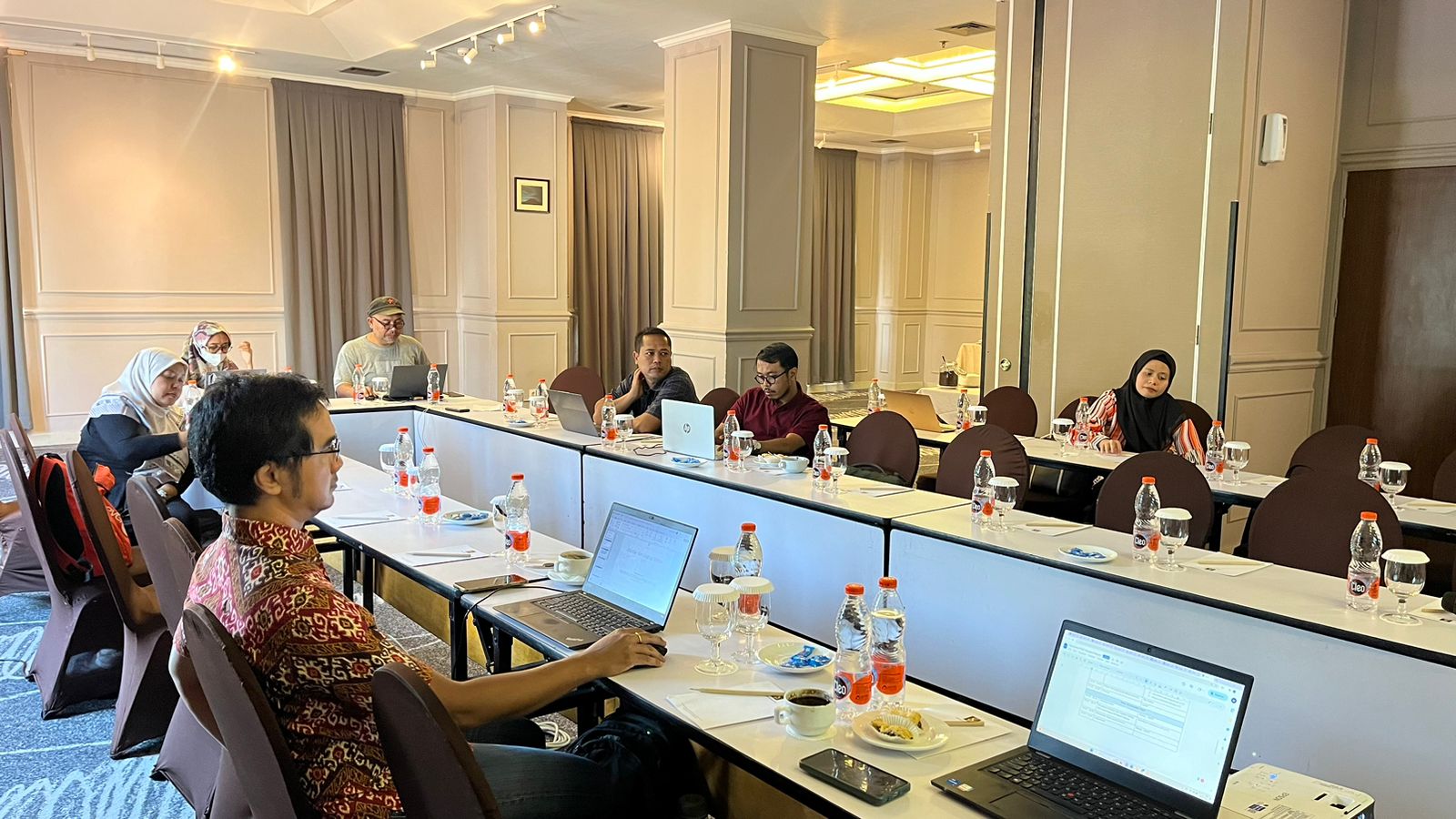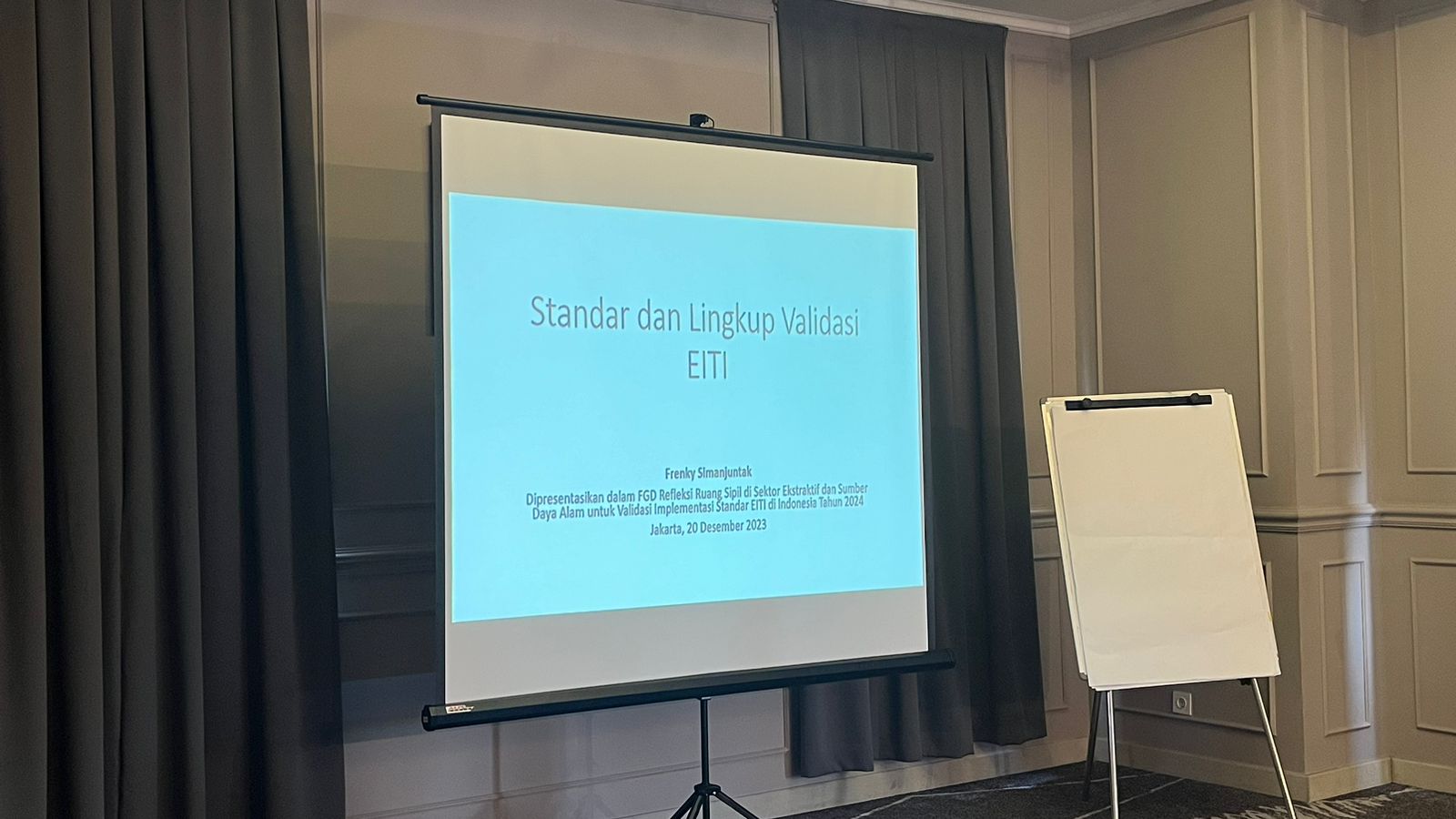Jakarta – Publish What You Pay (PWYP) Indonesia held a Focus Group Discussion entitled Reflection on Civil Space in the Extractive Sector and Natural Resources in the Framework of the Implementation of Extractive Industries Transparency Initiatives (EITI) in Indonesia on December 19-20, 2023. The FGD, which discussed the situation of civic space, was attended by civil society representatives in the EITI Indonesia Multi Stakeholders Group (MSG), representatives of the EITI Indonesia Secretariat, MSG EITI Indonesia parties, and several civil society organizations.
 Indonesia has been an EITI-implementing country since 2010 and has published EITI reports ten times. The report includes reports that have received the first validation in 2018. EITI validation is a periodic process held for five years to evaluate and assess implementing countries regarding stakeholder engagement, transparency, and tangible results or impacts. The following validation will be carried out in January 2024, presenting a team from EITI International who will discuss and provide an opportunity for the general public to give an overview of EITI implementation in Indonesia.
Indonesia has been an EITI-implementing country since 2010 and has published EITI reports ten times. The report includes reports that have received the first validation in 2018. EITI validation is a periodic process held for five years to evaluate and assess implementing countries regarding stakeholder engagement, transparency, and tangible results or impacts. The following validation will be carried out in January 2024, presenting a team from EITI International who will discuss and provide an opportunity for the general public to give an overview of EITI implementation in Indonesia.
On this occasion, civil society representatives in the MSG EITI Indonesia submitted a draft shadow report that provides an overview of the condition of civic space in Indonesia’s extractive and natural resource sectors. This shadow report will provide input for the upcoming 2024 EITI Indonesia validation process. Civil society representatives in the MSG EITI Indonesia urged that the issue of civic space should not only be associated with the EITI process. But also discusses broader civic space problems faced by communities at the site level related to environmental issues, indigenous peoples’ rights, contract disclosure, human rights, and gender equality that are still hampered.
 This activity also presented Frenky Simanjuntak from the EITI Indonesia Secretariat, who conveyed the EITI validation process to ensure that implementing countries such as Indonesia carry out their processes following EITI standards and requirements. Seven components are the subject of validation, including:
This activity also presented Frenky Simanjuntak from the EITI Indonesia Secretariat, who conveyed the EITI validation process to ensure that implementing countries such as Indonesia carry out their processes following EITI standards and requirements. Seven components are the subject of validation, including:
1. Oversight by Multi-Stakeholder Group (MSG)
This component talks about how each stakeholder’s effectiveness and role can perform its function optimally in EITI work.
2. Legal and institutional framework, including allocation of contracts and licenses
This component discusses how EITI countries must submit information on the legal and institutional framework of their country’s industry, including contracts and licenses.
3. Exploration and Production
Data on exploration and production of natural resources
4. Revenue Collection
5. Revenue Allocation
This component discusses how revenue allocations are distributed, accessible information
6. Social and economic spending
This component discusses CSR funds. In Indonesia, regulations require companies to report CSR funds.
7. Outcomes and Impact
This component discusses how EITI is valid or impacts society—more on the narrative of transparency or governance in EITI-implementing countries.
Author: Chitra Regina Apris
Reviewer: Aryanto Nugroho